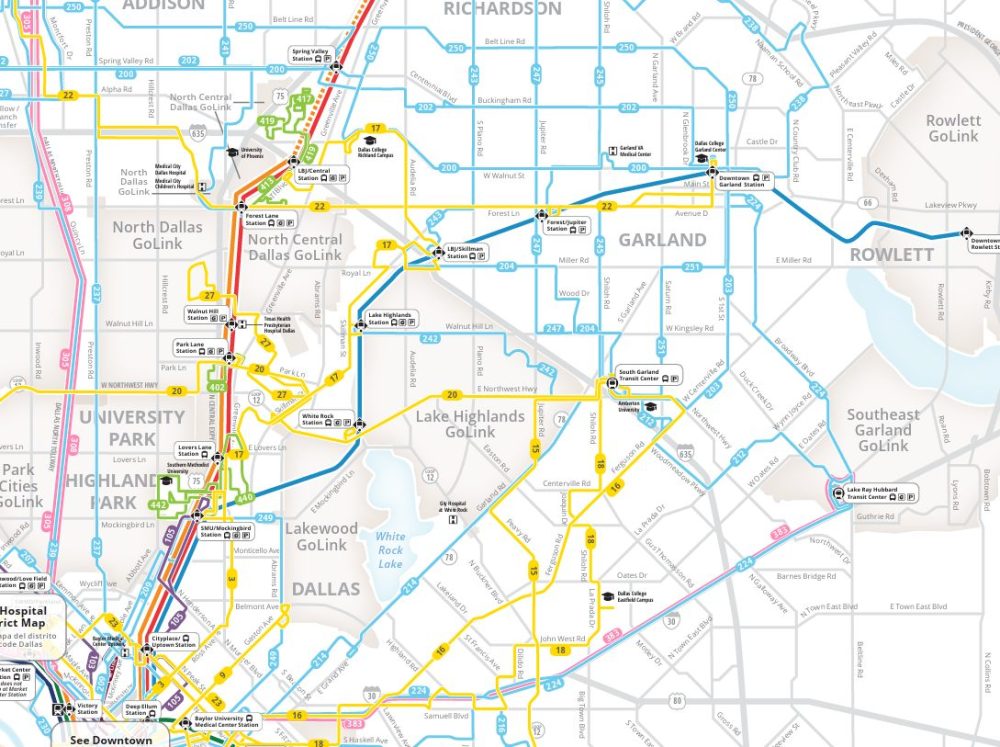‘DART Killer’ Bill Advances
May 6, 2025 – After weeks of debate and testimony, Texas lawmakers on the House Transportation Committee voted 9 to 2 on Tuesday to advance House Bill 3187, a measure that could significantly reshape public transit funding in the Dallas-Fort Worth region. Authored by Rep. Matt Shaheen (R-Plano), the bill proposes reducing the Dallas Area Rapid Transit (DART) system’s one-cent sales tax collection from member cities by 25%. That reduced portion would instead be funneled into a new general mobility fund, allowing cities to invest in alternative transportation and infrastructure projects.
DART serves Dallas and 12 surrounding cities with multimodal public transit services and customer facilities tailored to make exploring North Texas easy. DART buses, trains, GoLink On-Demand, Paratransit Services, Dallas Streetcar and the TRE make riding DART the fast and reliable way to travel.
Supporters of the bill argue that cities need more flexibility in how they spend transit-related funds, especially as local needs evolve beyond traditional rail and bus systems. Shaheen and others claim the legislation would empower municipalities to invest in broader mobility solutions, such as road improvements, bike lanes, or emerging technologies.
However, DART officials warn the consequences could be severe. Spokesperson Jeamy Molina said the proposed funding cut could result in service reductions of up to 30%, impacting daily riders who rely on buses and trains for work, school, and essential travel. DART serves 13 member cities, and a sharp reduction in services would disproportionately affect low-income and transit-dependent communities.
Critics also argue the bill undermines regional cooperation and threatens long-term investments in public transit infrastructure. As the legislation moves to the full House for consideration, the debate is likely to intensify, with public transit advocates, city leaders, and riders watching closely. The outcome could set a precedent for how Texas—and potentially other states—balance the needs of public transportation agencies with the push for local spending autonomy. With so much at stake, HB 3187 is shaping up to be one of the session’s most consequential transportation policy battles.







